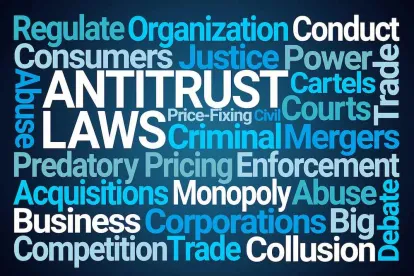Across the globe, an increasing number of international regulators have opened inquiries or adopted new rules and regulations to address competition law concerns about digital platforms and digital markets. Whilst the spotlight is likely to initially fall on the conduct and business practices of large online platforms – the so-called gatekeepers – we expect international regulators to cast their net more broadly. Businesses looking to expand to new jurisdictions need to navigate these regulations and assess the risk of enforcement actions. Whether the expansion comes through acquisitions or otherwise, regulators are increasingly looking at multinational businesses and platforms. Below is an overview of key international developments.
European Union
As part of the European Digital Strategy, Shaping Europe’s Digital Future, the European Commission announced that it would upgrade the rules governing digital services in the EU. The European Commission proposed two legislative initiatives: the Digital Services Act (DSA) and the Digital Markets Act (DMA). According to the Commission, the DSA and DMA have two main goals: (a) to create a safer digital space in which the fundamental rights of all users of digital services are protected; and (b) to establish a level playing field to foster innovation, growth, and competitiveness, both in the European Single Market and globally. The DSA includes rules for online intermediary services, which millions of Europeans use every day. The obligations of different online players would match their role, size, and impact in the online ecosystem. The DMA introduces rules for platforms that act as “gatekeepers” in the digital sector including measures to prevent gatekeeping platforms from imposing unfair conditions on businesses and consumers. In addition to the proposed regulations, the EU also has a number of active investigations into conduct in the digital markets sector. For example, in addition to its well-publicized investigations into the biggest digital “gatekeepers,” the European Commission is, amongst other actions, investigating Apple’s rules for app developers vis-à-vis the distribution of apps via the App Store.
United Kingdom
Now outside of the remit of the European Union, the United Kingdom is also expected to significantly increase its review and enforcement powers in relation to digital market participants. Most notably, the UK’s Competition and Market Authority is in the process of setting up a specific team—the Digital Markets Unit—to introduce and enforce a new Digital Code which will govern the behaviour of platforms that currently dominate the market. It is likely that the Unit will be given powers to suspend, block and/or reverse decisions of tech giants; order them to take certain actions to achieve compliance with the code; and/or impose financial penalties for non-compliance.
In February 2021, the CMA published its Digital Strategy setting out far-reaching reaching proposals which will dramatically change the regulatory landscape for digital markets in the UK. While the CMA has proposed certain procedural and legal safeguards for the new regime including transparent and robust decision-making and appeal procedures much detail for the new regime remains to be developed. The CMA has welcomed input from third parties to help develop its Digital Strategy. However, notwithstanding its invitation for comment, it is clear that the CMA is building its resources to investigate and, if necessary, enforce against relevant conduct in digital markets. Most recently, the CMA has announced its own investigation into Apple’s conduct vis-à-vis the Apple App Store. In relation to the recently announced investigation, Andrea Coscelli, Chief Executive of the CMA stated “special scrutiny is warranted for ‘complaints that Apple is using its market position to set terms which are unfair or may restrict competition and choice—potentially causing customers to lose out when buying and using apps.”
Rest of World
Internationally, an increasing number of regulators are reviewing or otherwise amending their regulatory framework to ensure conduct relating to digital markets are properly and thoroughly investigated. For example:
-
In China, regulators are working on guidelines to provide more detail in relation to the application of anti-monopoly rules to digital markets.
-
In Japan, it is expected that regulators will begin to formally monitor the conduct of certain platforms through mandatory disclosure requirements about certain business practices and conduct.
-
In Singapore, the competition regulator published a market study on e-commerce platforms including certain recommendations to update its existing competition guidelines in order to provide clarity and improve the application of competition and consumer protection laws as they apply to digital markets.
-
In South Korea, the Korean Fair Trade Commission recently proposed the “Online Platform Fairness Act” to expand regulation of business practices to online market participants. These new measures will require tech companies to consider how they may become subject to additional regulation in Korea.
-
In Australia, a much publicized law sparked a global conversation about the role of online platforms in the distribution of news. The law would require online platforms to pay news content producers when providing links to their content on a platform. Google preemptively negotiated pay-for-news deals with several Australian companies.
-
In France, Google took a similar approach, creating “Google News Showcase,” and agreeing to pay $76 million over three years to a group of 121 news publishers.
While the Australian law made waves in the industry, generating pushback from tech platforms and from small news publishers, the major players seem to have struck an uneasy peace with the current regulations. The Australian government recently agreed to amend the law to give the platforms two months to reach agreements with new publishers before resorting to mandatory arbitration. Such moves by a national government, signal a broader governmental interest in the relationships between digital markets and non-digital markets.
In additional to domestic legislative changes designed to capture and prohibit infringing digital market conduct, it is clear that international regulators will share information with each other when reviewing the same conduct. Given the cross-border nature of digital markets, the Organization for Economic Cooperation and Development has noted, “Governments may need to enhance co-operation across national competent agencies to address competition issues that are increasingly transnational in scope or involve global firms.” Going forward, we expect international regulators to work together or at least consult with each other when reviewing simultaneously the conduct of digital market participants and international transactions in the sector.
Takeaways
The scope and extent of international regulatory developments shows no sign of slowing down. We expect to see a number of battle lines drawn with regulators using enhanced powers to combat perceived anti-competitive or otherwise unlawful conduct in the digital sector. With a number of jurisdictions toughening digital market related regulations, compliance may require businesses to change their practices. In countries where laws have not changed specifically to address digital market concerns, companies active in the sector may need to assess the risk of relevant authorities and governmental agencies using broader interpretations of existing laws to capture conduct they deem unfair or otherwise anticompetitive. As such, market participants will need to keep a close eye on the wide-ranging international regulatory developments to ensure compliance with all applicable rules and regulations.




 />i
/>i

